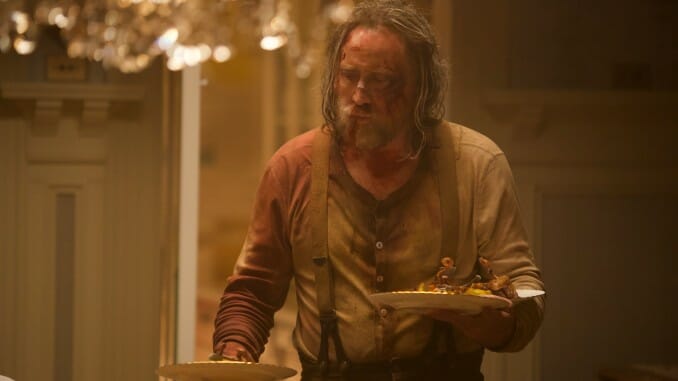That’ll Do, Pig. That’ll Do.

In the forest outside Portland, a man’s pig is stolen. Rob (Nicolas Cage) is a witchy truffle forager that we learn used to be a chef—a Michelin-starred Baba Yaga, a gastronomical Radagast—who sells his pig’s findings to sustain his isolated life. What follows is not a revenge thriller. This is not a porcine Taken. Pig, the ambitious debut of writer/director Michael Sarnoski, is a blindsiding and measured treatise on the masculine response to loss. Featuring Nicolas Cage in one of his most successful recent permutations, evolving Mandy’s silent force of nature to an extinct volcano of scabbed-over pain, Pig unearths broad themes by thoroughly sniffing out the details of its microcosm.
The other component making up this Pacific NW terrarium, aside from Rob and the golden-furred Brandy’s endearingly shorthanded connection, is the guy Rob sells his truffles to, Amir. Alex Wolff’s tiny Succession-esque business jerk is a bundle of jagged inadequacies, and only Rob’s calloused wisdom can handle such prickliness. They’re exceptional foils for one another, classic tonal opposites that share plenty under the surface of age. Together, the pair search for the pignapping victim, which inevitably leads them out of the forest and back into the city. There they collide with the seediest, John Wick’s Kitchen Confidential kind of industry underbelly you can imagine, in a series of standoffs, soliloquies and strange stares.
-

-

-

-

-

-

-

-

-

-

-

-

-

-

-

-

-

-

-

-

-

-

-

-

-

-

-

-

-

-

-

-

-

-

-

-

-

-

-

-








































